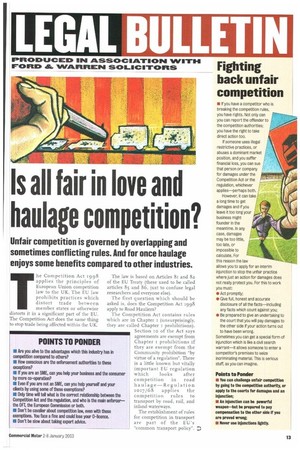Fighting back unfair competition
Page 13

If you've noticed an error in this article please click here to report it so we can fix it.
• if you have a competitor who is breaking the competition rules, you have rights. Not only can you can report the offender to :the competition authorities: you have the right to take direct action too.
If someone uses illegal restrictive practices, or abuses a dominant market position, and you suffer financial loss, you can sue that person or company for damages under the Competition Act or the regulation, whichever applies—perhaps both.
However, it can take a long time to get damages and if you leave it too long your business might founder in the meantime. In any case, damages may be too little, too late, or impossible to calculate. For this reason the law allows you to apply for an interim injunction to stop the unfair practice where just an action for damages does not really protect you. For this to work you must: • Act promptly: • Give full, honest and accurate disclosure of all the facts—including any facts which count against you; • Be prepared to give an undertaking to the court that you will pay damages to the other side if your action turns out to have been wrong.
Sometimes you can get a special form of injunction which is like a civil search warrant—it allows someone to enter a competitor's premises to seize incriminating material. This is serious stuff, as you can imagine.
































































































































